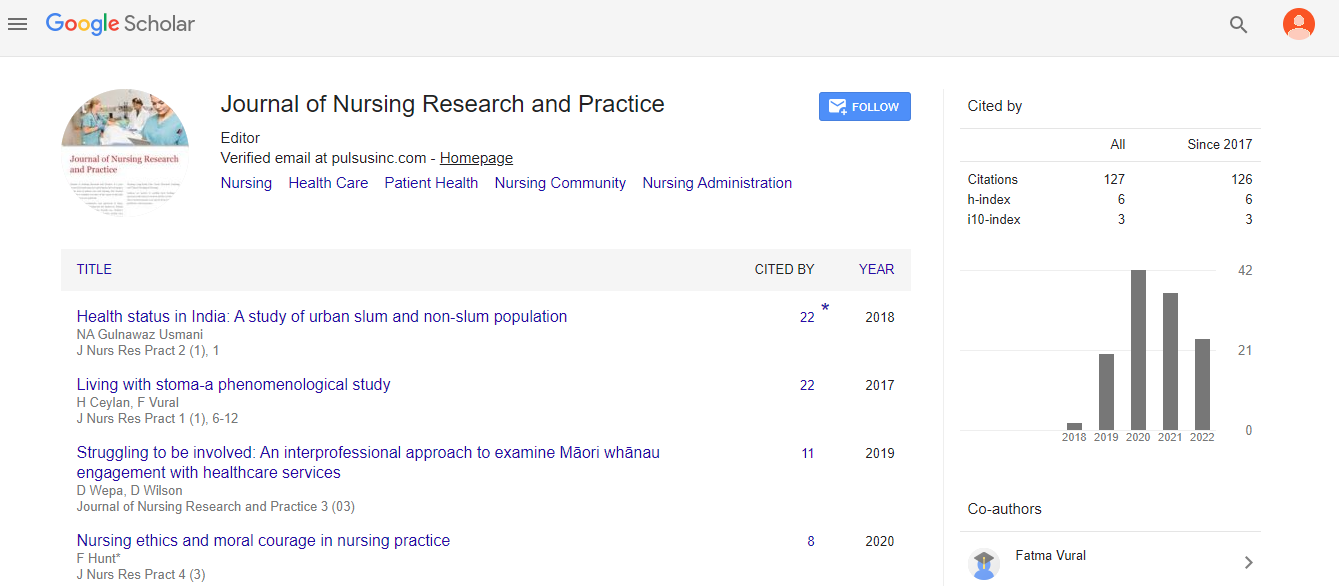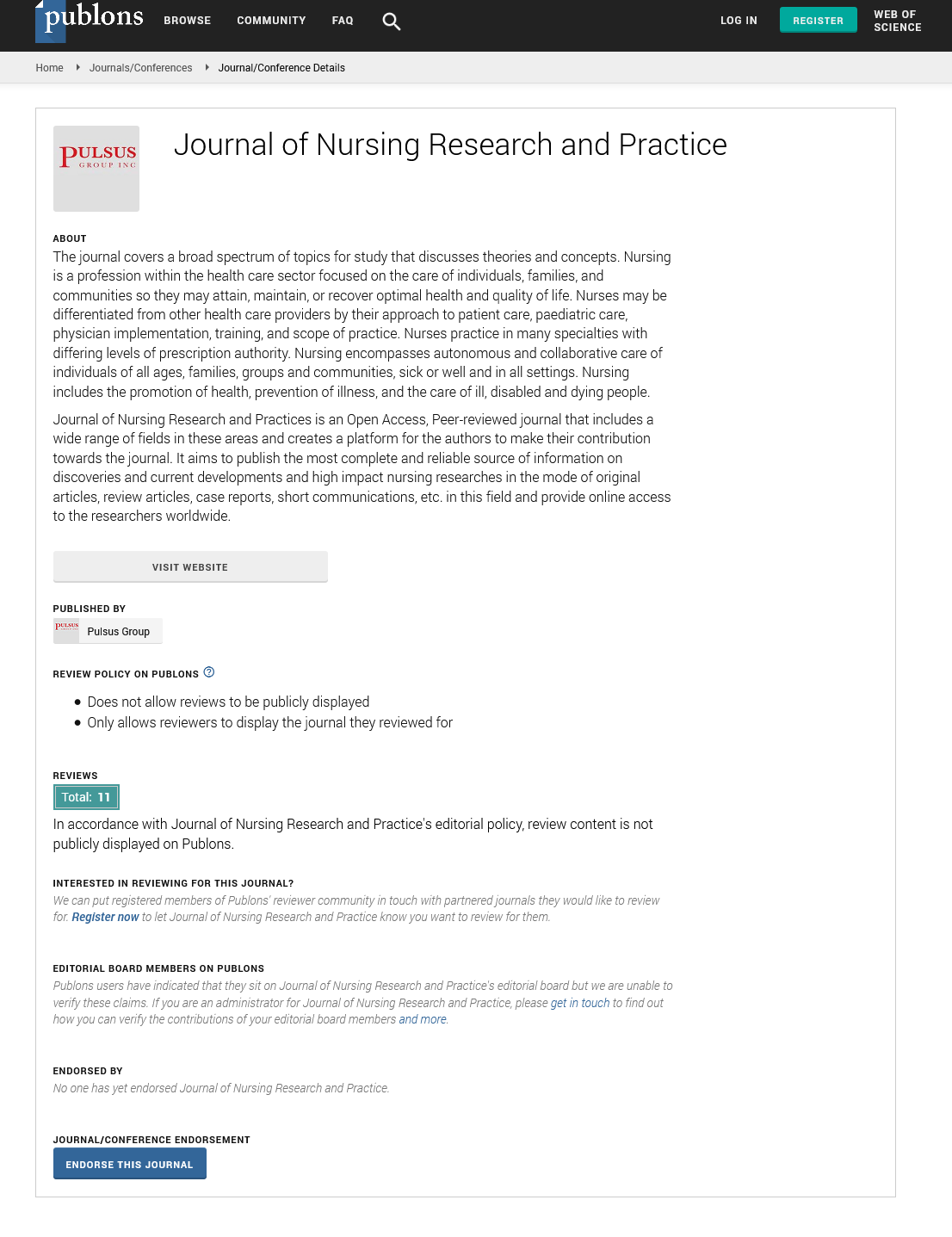
Sign up for email alert when new content gets added: Sign up
Pediatric oncologic Emergencies: Evidence-Based Approaches in Tumor Lysis Syndrome
Joint Event on 45th World Congress on Nursing Care & 8th European Breast Congress
December 11-13, 2017 | Rome, Italy
Cigdem Sari, Cigdem Ceylan, Ebru Kilicarslan-Toruner and Naime Altay
Gazi University Health Sciences Faculty Nursing Department, Ankara, Turkey
ScientificTracks Abstracts: J Nurs Res Pract
Abstract :
Introduction: Oncologic emergencies are clinical problems requiring emergency medical interventions. That are lifethreatening due to development of structural and metabolic changes resulting from cancer itself, its metastasis or treatment complications. Tumor lysis syndrome (TLS) is a potentially life threatening emergency commonly seen in children with hematologic malignancies and tumors with high proliferative rates. Objective-Method: The purpose of this study is to review the evidence-based data about Tumor Lysis Syndrome among the pediatric oncologic emergencies. Literature review was performed by using 5 key words as ├ó┬?┬?Tumor lysis syndrome├ó┬?┬Ł, ├ó┬?┬?oncologic emergencies├ó┬?┬Ł ├ó┬?┬?evidence-based study├ó┬?┬Ł ├ó┬?┬?care├ó┬?┬Ł and ├ó┬?┬?child/pediatric├ó┬?┬Ł on Pubmed, Medscape and Cochrane databases between 2012 and 2017. Randomized control studies, meta-analyses, systematic reviews, and guidelines regarding the matter are examined in the literature. Results: The main criterion for success in the TLS is to classify the patients correctly in terms of the risk group before starting the cancer treatment and then to initiate appropriate treatment/care interventions. Multidisciplinary approach is important in the risk identification of the individuals and in treatment management (Grade 1C). From this perspective, nurses as well as hematologists and nephrologists have critical roles. In TLS, nurses should focus on three main elements in the direction of evidence-based studies regarding the management of care and treatment: 1) identification of risky individuals, 2) implemantation of interventions regarding prevention, and 3) management of treatment and care. Nursing interventions should be performed by based on evidence-based scientific knowledge.When the evidence-based studies are examined, it is important to identify the individuals at risk. Especially children receiving chemotherapy for hematologic malignancies are accepted as high riskindividuals in terms of TLS (Grade 1B). Risk identification and initiation of hydration therapy are important in the planning of interventions regarding prevention. Potassium should not be added in the IV fluid in hydration treatment according to the current approaches (Grade 1A). Treatment of alkalinization in TLS prophylaxis is no longer recommended (Grade 1C). When evidence-based approaches in TLS treatment are examined; it is required to monitor the patients including the lowrisk category, perform hydration treatment and if required, to start allopurinol treatment (Grade 2C). In high-risk children, Rasburicase treatment is recommended together with the hydration treatment (Grade 2C). In order to provide the electrolyte balance, only monitorization should be done in asymptomatic children (Grade 2C), and if it is symptomatic, it is required to perform required supports and to monitor the child (Grade 1C). Clinical and laboratory findings should be closely monitored and appropriate treatment and care approaches should be performed according to the evidence-based studies. Conclusion: Nurses should continuously monitor the evidence-based data and the developments in treatment and care. Especially at this point, it is required to include more oncologic emergencies training such as TLS in nursing education. Key words: Tumor lysis syndrome, oncologic emergencies, evidence-based study, care, child/pediatric
Biography :
Cigdem Sari Gazi University Health Sciences Faculty Nursing Department, Ankara, Turkey Sari completed nursing bachelor program in F├?┬▒rat University, School of Nursing in 2012, and graduated ranking first in the nursing department. Sari completed master degree in Gazi University School of Nursing in 2014 and has started the doctorate program in 2014 and ongoing her research. Sari became a research assistant in Gazi University Health Sciences Faculty in 2012, and her tenure still in progress in the same position. At the same time, She has been a lactation consultant





